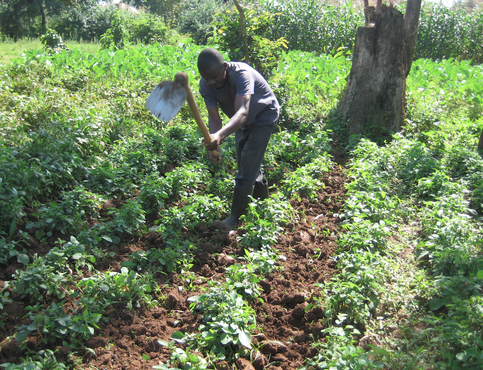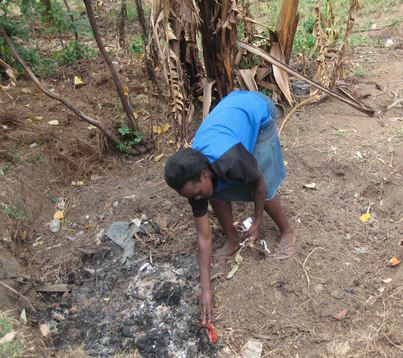SMALL BUSINESS TRAINING PROGRAMS
Situation-sensitive sustainability

We believe in ecological, sustainable farming practices. However, the critical-poverty situation in which our program beneficiaries live means that we cannot ethically promote strictly organic farming practices to the exclusion of more productive, conventional farming methods. Instead, our Kenyan partners teach sustainable intensification methods that aim to yield more from land in the short term while improving soil fertility and future yields in the long term.
Our local farm experts often find that the best ways to improve soil fertility are precisely those organic methods that make the greatest difference for the ecological landscape. For example, our farm educators instruct on topics that include compost-making, manure curing, crop rotation, diversification, and efficient use of fertilizers (micro-dosing). All of these techniques increase yields while improving environmental outcomes.
Our local farm experts often find that the best ways to improve soil fertility are precisely those organic methods that make the greatest difference for the ecological landscape. For example, our farm educators instruct on topics that include compost-making, manure curing, crop rotation, diversification, and efficient use of fertilizers (micro-dosing). All of these techniques increase yields while improving environmental outcomes.

Our local farm experts often find that the best ways to improve soil fertility are precisely those organic methods that make the greatest difference for the ecological landscape. For example, our farm educators instruct on topics that include compost-making, manure curing, crop rotation, diversification, and efficient use of fertilizers (micro-dosing). All of these techniques increase yields while improving environmental outcomes.
